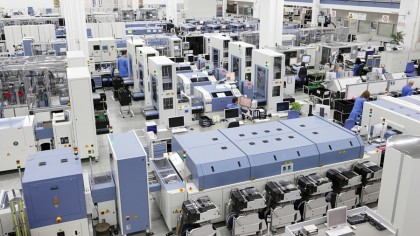Why the Internet of Things could fail
Is the IoT really the slam-dunk we're all told it is?

The Internet of Things is going to be big, we're told. Cisco thinks that by 2020, there will be approximately 11.6 billion mobile devices and machine-to-machine connections, up from 7.9 billion in 2015, while a new report from the Centre for Economics and Business Research (CEBR) states that big data and the IoT will add £322 billion to the UK economy by 2020, creating 182,000 new jobs.
Gartner has forecast IoT adoption to grow 50% in 2016 alone. Is the IoT really as inevitable – and as all-encompassing – as we're led to believe? Is this confidence in the IoT over-optimistic?

Why the optimistic predictions?
The hype cycle is in full swing, and that's not unusual for new technologies, but the IoT is all, and only, about connected devices, and their growth in popularity.
"While very rapid growth rates can sometimes be achieved in the consumer market, growth in the business market is more measured," says Robin Duke-Woolley, CEO at Beecham Research, who thinks that the predicted spread of the IoT is based on a misunderstanding; growing the IoT isn't going to be as easy as selling smartphones.
But it's on the latter's success that predictions about the IoT's super-quick implementation appear to be based. "Most of the applications currently being developed for connected devices are in the business market not the consumer market and this is likely to be the case for some time," says Duke-Woolley, "but many of the predictions seem to be based either on rapid consumer market growth, or on unrealistically rapid growth in the business market – or both."
Why the sudden increase?
In the business market, rates of 20% to 30% per year for connected device units growth have been quite typical over the last decade, according to Duke-Woolley. "Some IoT predictions are forecasting anywhere up to 100% growth per annum and the question that needs to be asked is: why the sudden increase?"
He's suspicious of attempts to triple or quadruple this well-known growth rate. "Growth rates that are currently being achieved in IoT are exciting, and are based on long-term trends that have been apparent for many years," he adds, while insisting that many of those that are currently being projected are "ludicrously high".
Are you a pro? Subscribe to our newsletter
Sign up to the TechRadar Pro newsletter to get all the top news, opinion, features and guidance your business needs to succeed!
Unproven potential
Many agree that the IoT has the potential to have a greater impact than the first digital revolution. "But it would be foolish to ignore the fact that the long-term profitability of some services and applications have yet to be proven," says Matthew Evans, executive director at industry body techUK.
That's very often the case with new technologies – despite the hype, the IoT will only catch on if it makes efficiency savings, and if the services it creates are in demand. In short, when it comes to the IoT, the jury is out.

Bring on the hype
However, some think the hype around the IoT is fully justified. "The tech industry is rightly confident in the IoT and its potential – it is our future and we have still barely left the start line," says Peter Veash, founder and CEO at The BIO Agency. "New products are arriving every week and making the impossible more realistic, but we don't yet necessarily know exactly what the IoT future could look like, or its impact on society."
That helps explain why few in the tech industry can offer more than a couple of examples of compelling IoT projects that could change society.
- 1
- 2
Current page: Introduction and IoT hype
Next Page Chief IoT Officers and the trivialisation trapJamie is a freelance tech, travel and space journalist based in the UK. He’s been writing regularly for Techradar since it was launched in 2008 and also writes regularly for Forbes, The Telegraph, the South China Morning Post, Sky & Telescope and the Sky At Night magazine as well as other Future titles T3, Digital Camera World, All About Space and Space.com. He also edits two of his own websites, TravGear.com and WhenIsTheNextEclipse.com that reflect his obsession with travel gear and solar eclipse travel. He is the author of A Stargazing Program For Beginners (Springer, 2015),
